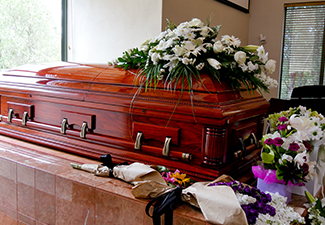FAQs: What Needs to Be Done When Someone Dies
Nov. 3, 2022
 Losing a loved one is one of the most painful and difficult experiences we face in life. No one is ever prepared for the death of a family member because saying goodbye to someone you love is always emotionally devastating.
Losing a loved one is one of the most painful and difficult experiences we face in life. No one is ever prepared for the death of a family member because saying goodbye to someone you love is always emotionally devastating.
In the aftermath of a loved one’s death, surviving family members may need days, weeks, or months to grieve their loss. However, you will need to take certain steps when someone in your family dies as you grieve.
As an estate planning and probate attorney at Michael A. Siefert, P.A., I receive phone calls from people who have just lost a loved one frequently. People ask me what needs to be done after the death of their loved one and seek my assistance with the estate administration and probate processes. I serve clients in Ocala, Florida, and throughout Marion County, so if you need me to ease your burden after the death of a loved one, contact me right away.
FAQs: What Needs to Be Done When a Loved One Dies?
In the FAQs section below, I will provide answers to the questions I often hear people ask after losing a loved one. The FAQ section outlines the actionable steps you can take to navigate this difficult time in your life.
Question #1: “What is the first thing I should do when my loved one dies?” The first thing anyone should do after losing a loved one is arrange proper care of the body and obtain a legal pronouncement of death, which serves as the official declaration of death. If your family member died in a nursing home or hospital, they might have been pronounced dead by the facility’s staff. If your loved one died at home, you would need to call a medical professional to declare your family member dead for the purposes of obtaining a legal pronouncement of death.
Question #2: “Should I donate my loved one’s organs?” To determine whether you need to arrange for organ donation, check your family member’s advance directive, living will, or driver’s license. If any of the documents say that your loved one is an organ donor, you must call a nearby hospital as soon as possible to arrange the timely collection of the organs.
Question #3: “Who do I need to notify when a family member dies?” Telling someone about the death of a loved one is one of the most heart-wrenching experiences you can think of. If you do not know who to notify, I have compiled a list of people you may need to consider informing of the death:
Immediate family members
Relatives
Friends
Coworkers
Employers
Frequent acquaintances
You may also need to notify the decedent’s bank, insurance company, Social Security, and other entities.
Question #4: “What funeral arrangements should be made after the death?” That depends on whether your loved one left behind any estate planning documents, such as a last will and testament, detailing their final wishes. If he or she did, you must ensure that their wishes are honored. In addition, check the decedent’s estate plan to see whether they designated a specific person to make funeral and burial arrangements after their death.
Question #5: “What about the deceased person’s children or pets?” If a loved one left behind children, pets, or people with special needs, you need to make arrangements for their immediate care. These arrangements may be temporary until a long-term plan is put in place.
Question #6: “Do I need to get a death certificate?” Yes. Obtaining a legal pronouncement of death is the first step to getting a death certificate. You need the certificate to make burial and funeral arrangements, settle an estate, claim life insurance benefits, close financial accounts, and do other things.
Question #7: “How is the decedent’s will or trust handled?” If you have located and found the decedent’s will and trust documents, you should also be able to identify the executor named in the will. Interpreting estate planning documents can be difficult, especially when mourning your loss, which is why you may need to speak with an experienced estate planning attorney to review the loved one’s estate plan for you and tell you what to do next.
Question #8: “Do I need an attorney after a loved one dies?” Most people can benefit from contacting an estate planning attorney after losing a loved one. An attorney can help you navigate through what might seem like a complicated and frustrating process at this difficult time. If you hire a probate attorney, you will get assistance with the administration process. Your attorney will help you make informed decisions regarding your loved one’s estate, send out required notices, and settle the decedent’s affairs.
If you are still confused about what needs to be done after the death of your loved one, contact Michael A. Siefert, P.A. to seek immediate legal assistance.
Get Legal Assistance With Estate Planning
Losing a loved one can be an emotionally-taxing experience, which is why many people overlook important things. That’s why you may need to consider contacting an attorney to help you through every step of the process. As a probate attorney at Michael A. Siefert, P.A., I can ease your burden and handle the process for you while you take the time to grieve and cope. Contact my office in Ocala, Florida, to request a consultation.
